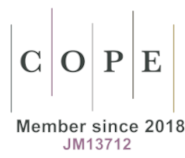National and Cultural Identity in Iraq in the Face of the Formation of the New Order in the Middle East. Philosophical Reflection and the Political Reality
DOI:
https://doi.org/10.18778/1641-4233.21.05Słowa kluczowe:
Iraq, colonisability, national identity, self-awareness, civil war, national reconciliationAbstrakt
After Arab Spring many hopes were dashed. However historical change must be happening now in the area of social awareness. The rise of extremism limits awareness and also endangers the Arab identity. The Arab revolution has to be more than the overthrowing of dictators. Bennabi created the concept of Post- Almohad Man and its “Colonsability” – a tendency to be colonized which allows the aggressor to be transformed into the colonizer. Is Bennabi’s theory applicable to Iraq? Should killing a Post- Almohad Man be the aim, as Bennabi postulated, and only this will allow society to develop? Although Bennabi rather had in mind liberation from auto-stereotype and reconstruction of identity, many still interpret his words literally.
Pobrania
Bibliografia
Deutsch, N., Save the Gnostics, “The New York Times” (October, 2007). Web. 20 August 2016, http://www.nytimes.com/2007/10/06/opinion/06deutsch.html?_r=0
Zobacz w Google Scholar
Dziekan, M., Historia Iraku [History of Iraq]. Warszawa: Dialog, 2007.
Zobacz w Google Scholar
Dziekan, M., Irak. Religia i Polityka [Iraq, Religion and Politics]. Warszawa: Elipsa, 2005.
Zobacz w Google Scholar
Dziekan, M., Złote Stolice Arabów. Szkice o współczesnej myśli arabskiej [The Golden Capitals of Arabs]. Warszawa: Czytelnik, 2011.
Zobacz w Google Scholar
Fanon, F., Wyklęty lud ziemi [The Wretched of the Earth]. Warszawa: Państwowy Instytut Wydawniczy, 1985.
Zobacz w Google Scholar
Iraq’s Minorities and Other Vulnerable Groups: Legal Framework, Documentation and Human Rights, Institute for International Law and Human Rights [IILHR] (May, 2013). Web. 20 August 2016, http://www.iilhr.org/documents/MinorityHB_EN.pdf
Zobacz w Google Scholar
Nasr, V., The Shia Revival. New York: Norton, 2007.
Zobacz w Google Scholar
Ramadan, T., The need for an Arab Cultural Revolution, Tariq Ramadan website (April, 2013). Web 20 August 2016, http://tariqramadan.com/english/the-need-for-an-arab-cultural-revolution/
Zobacz w Google Scholar
Report from 2011, NGO Coordination committee for Iraq (NCCI). Web. 20 August 2016, http://www.ncciraq.org/en/archive/ncci-studies
Zobacz w Google Scholar
Saeed, H., Civil Society in Iraq: A Particular emphasis on the Islamic Discourse, Research Papers for the Regional Conference on Research on Civil Society Organisations “Status and Prospects”, January 2010.
Zobacz w Google Scholar
Said, E., Orientalizm [Orientalism]. Warszawa: Zysk i spółka, 2005.
Zobacz w Google Scholar
Pobrania
Opublikowane
Jak cytować
Numer
Dział
Licencja
Prawa autorskie (c) 2018 International Studies. Interdisciplinary Political and Cultural Journal

Utwór dostępny jest na licencji Creative Commons Uznanie autorstwa – Użycie niekomercyjne – Bez utworów zależnych 4.0 Międzynarodowe.

















